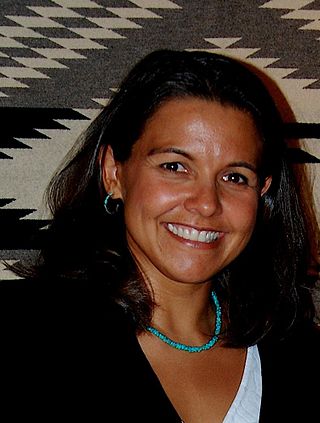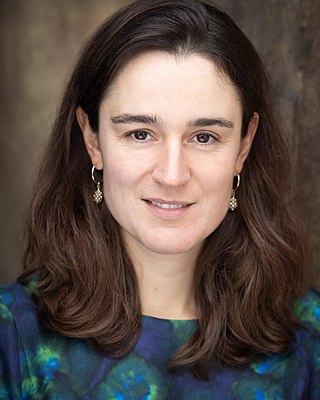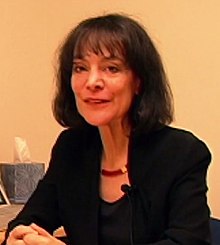Psychology is the study of mind and behavior. Its subject matter includes the behavior of humans and nonhumans, both conscious and unconscious phenomena, and mental processes such as thoughts, feelings, and motives. Psychology is an academic discipline of immense scope, crossing the boundaries between the natural and social sciences. Biological psychologists seek an understanding of the emergent properties of brains, linking the discipline to neuroscience. As social scientists, psychologists aim to understand the behavior of individuals and groups.
A mindset is an established set of attitudes of a person or group concerning culture, values, philosophy, frame of mind, outlook, and disposition. It may also arise from a person's worldview or beliefs about the meaning of life. A person can have multiple mindsets, whilst the two most common ones are often cited as the growth and fixed mindset, a person also has a money mindset which can be more deeply described as a poverty mindset or a wealth mindset. There are also: abundance mindset, positive mindset, negative mindset, victim mindset, protector mindset, poverty mindset, rich mindset, wealth mindset, losing mindset, and winning mindset among others that form the make up of a person's overall mindset based on the various values, beliefs, experiences and opinions that comprise the thinking on a conscious and unconscious level regarding these things.

Albert Bandura was a Canadian-American psychologist. He was a professor of social science in psychology at Stanford University.
The psychology of learning refers to theories and research on how individuals learn. There are many theories of learning. Some take on a more behaviorist approach which focuses on inputs and reinforcements. Other approaches, such as theories related to neuroscience and social cognition, focus more on how the brain's organization and structure influence learning. Some psychological approaches, such as social constructivism, focus more on one's interaction with the environment and with others. Other theories, such as those related to motivation, like the growth mindset, focus more on individuals' perceptions of ability.

Mahzarin Rustum Banaji FBA is an American psychologist of Indian origin at Harvard University, known for her work popularizing the concept of implicit bias in regard to race, gender, sexual orientation, and other factors.
Hazel June Linda Rose Markus is an American social psychologist and a pioneer in the field of cultural psychology. She is the Davis-Brack Professor in the Behavioral Sciences at Stanford University in Stanford, California. She is also a founder and faculty director of Stanford SPARQ, a "do tank" that partners with industry leaders to tackle disparities and inspire culture change using insights from behavioral science. She is a founder and former director of the Research Institute of the Center for Comparative Studies in Race and Ethnicity (CCSRE). Her research focuses on how culture shapes mind and behavior. She examines how many forms of culture influence the self, and in turn, how we think, feel, and act.
Goal orientation, or achievement orientation, is an "individual disposition towards developing or validating one's ability in achievement settings". In general, an individual can be said to be mastery or performance oriented, based on whether one's goal is to develop one's ability or to demonstrate one's ability, respectively. A mastery orientation is also sometimes referred to as a learning orientation.
Thriving is a condition beyond mere survival, implying growth and positive development.

Jo Boaler is a British education author and Nomellini-Olivier Professor of Mathematics Education at the Stanford Graduate School of Education. Boaler is involved in promoting reform mathematics and equitable mathematics classrooms. She is the co-founder and faculty director of youcubed a Stanford centre that offers free mathematics education resources to teachers, students and parents. She is the author of nine books, including Limitless Mind (2019), Mathematical Mindsets (2016), What's Math Got To Do With It? (2009) and The Elephant in the Classroom (2010), all written for teachers and parents with the goal of improving mathematics education in both the US and UK.

Michele J. Gelfand is an American cultural psychologist. She is both a professor of organizational behavior and the John H. Scully professor of cross-cultural management at the Stanford Graduate School of Business, and – by courtesy – a professor of psychology at the School of Humanities and Sciences of Stanford University. She has published research on tightness–looseness theory.
Andrew J. Elliot is a professor of psychology at the University of Rochester. His research on the hierarchical model of approach and avoidance motivation focuses on combining classic and contemporary methods to test various theories. Elliot's work in social psychology is cited frequently by those in the field, causing him to be named one of Thomson Reuters' ISI Highly Cited for the Social Sciences in 2010.
In social and developmental psychology, an individual's implicit theory of intelligence refers to his or her fundamental underlying beliefs regarding whether or not intelligence or abilities can change, developed by Carol Dweck and colleagues.

Stephanie Fryberg is a Tulalip psychologist who received her Master's and Doctorate degrees from Stanford University, where in 2011 she was inducted into the Multicultural Hall of Fame. In the same year, she testified before Senate on Stolen Identities: The impact of racist stereotypes on Indigenous people. She previously taught psychology at the University of Arizona, at the Tulalip Community at Marysville School, and at the University of Washington. She currently teaches American Indian Studies and Psychology at the University of Michigan, and is a member of the Tulalip Tribe. Her research focuses on race, class, and culture in relation to ones psychological development and mental health. She translated Carol Dweck's growth mindset; taking a communal-oriented approach. The students on her tribe's reservation who received her translation had significant improvement compared to the original version.

The Yidan Prize (/i:dan/) is a prize founded in 2016 by Chen Yidan for "contributions to education research and development". The prize is financed and governed by a HK$2.5 billion independent trust. It is a global, inclusive education award which recognizes changemakers who inspire progress in education for a better world, and has been referred to as the largest education prize on earth.
Kristina Reiss Olson is a psychologist and a professor at Princeton University. She is known for her research on the development of social categories, transgender youth, and variation in human gender development. Olson was recipient of the 2016 Janet Taylor Spence Award from the Association for Psychological Science for transformative early career contributions, and the 2014 SAGE Young Scholars Award. Olson received the Alan T. Waterman Award from the National Science Foundation in 2018, and was the first psychological scientist to receive this prestigious award honoring early-career scientists. Olson is a member of the 2018 cohort of MacArthur fellows.

Kathleen Hogan is Executive Vice President for human resources and Chief People Officer at Microsoft.
Jennifer Lynn Eberhardt is an American social psychologist who is currently a professor in the Department of Psychology at Stanford University. Eberhardt has been responsible for major contributions on investigating the consequences of the psychological association between race and crime through methods such as field studies and laboratory studies. She has also contributed to research on unconscious bias, including demonstrating how racial imagery and judgment affect culture and society within the domain of social justice. The results from her work have contributed to training law enforcement officers and state agencies to better their judgments through implicit bias training. She has also provided directions for future research in this domain and brought attention to mistreatment in communities due to biases.
Jutta Heckhausen is Professor of Psychological Science, University of California, Irvine. She specializes in life-span developmental psychology, motivation, individual agency and social context. She expanded her education at the Center for Social and Behavioral Science, Stanford University and at the Center for Interdisciplinary Research, University Bielefeld, Germany. At the Department of Psychological Science at University of California, Irvine, she teaches in the areas of life-span development and motivational psychology.

Success is the state or condition of meeting a defined range of expectations. It may be viewed as the opposite of failure. The criteria for success depend on context, and may be relative to a particular observer or belief system. One person might consider a success what another person considers a failure, particularly in cases of direct competition or a zero-sum game. Similarly, the degree of success or failure in a situation may be differently viewed by distinct observers or participants, such that a situation that one considers to be a success, another might consider to be a failure, a qualified success or a neutral situation. For example, a film that is a commercial failure or even a box-office bomb can go on to receive a cult following, with the initial lack of commercial success even lending a cachet of subcultural coolness.

Sophie von Stumm is a professor of psychology in education who studies the causes and consequences of individual differences in psychological and behavioural development across the life course.









